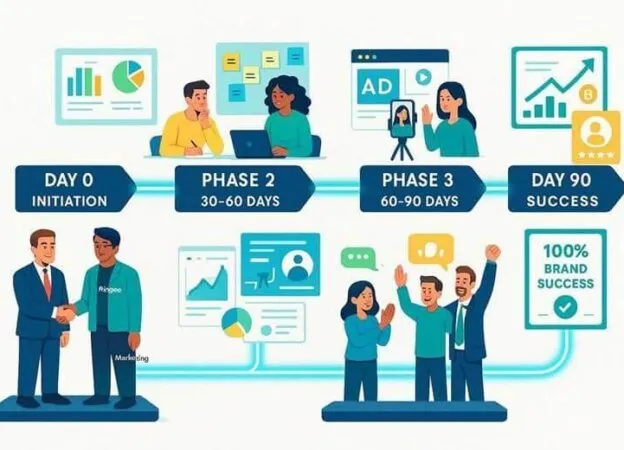This guide will delve into the intricacies of hyperlocal SEO packages, illustrating how it enhances your visibility on search engine results pages and enables you to connect with more prospective customers.
You’ll gain insights into recognizing and harnessing local search terms, voice search optimization, and crafting content specifically for local audiences. We’ll also unravel the secrets of optimizing Google My Business listings and exploiting social media marketing to establish a strong presence in your community.
Table of Contents
Discovering Your Audience
A. Understanding who your target audience is and what they need can be a daunting task for many businesses. However, getting to know your community and comprehending their needs and wants is vital for the success of your products or services.
B. Begin by examining demographic factors like age, gender, income level, location, occupation, and interests/hobbies. With a clear understanding of your target market’s composition, delve deeper into their specific requirements and expectations from a business like yours.
C. Analyze their purchasing habits – do they favor online shopping over traditional stores? Is convenience more important than cost? These factors should guide your marketing strategy and help you craft an experience tailored to this unique group.
Investigating Your Rivals
A. Studying your competition is crucial to staying updated with industry trends, remaining ahead of the curve, and maintaining a competitive edge in the market.
B. To start, compile a list of businesses in your area (or online) that provide similar products or services. Assess their strengths and weaknesses to gain insights into their pricing and marketing strategies.
C. Regularly monitor your competitors’ performance in terms of sales figures, customer satisfaction, website traffic, and more. Stay informed about promotions, new products, or services by signing up for their newsletters.
Optimization for Local Queries
A. As local searches become increasingly relevant to businesses, optimizing your content for local queries can skyrocket your company’s visibility within the community.
B. Create content tailored for local customers by focusing on topics related to their search preferences. Encourage user engagement with strong calls-to-action that drive conversions.
C. Ensure your company’s information is up-to-date across all relevant online directories like Google My Business and Yelp. This enhances visibility for business-specific or geographically relevant keyword searches.
Analyzing the Outcomes
A. Assessing the results of your efforts is essential for refining your strategies and concentrating your resources on the most effective areas.
B. Establish a system for tracking and measuring success, such as website traffic or customer satisfaction surveys. Create benchmarks to compare the performance of each effort over time.
C. Measure progress over time and compare your performance with competitors or similar businesses. Regularly review historical data to determine the effectiveness of different tactics.
FAQ: Hyperlocal SEO
What is hyperlocal SEO and why is it important?
Hyperlocal SEO refers to the optimization of a website or online presence to target a specific local area or neighborhood. It involves optimizing website content, online listings, and other digital assets to attract local customers.
Hyperlocal SEO is important because it helps businesses increase their visibility and attract highly targeted traffic from people searching for products or services in their immediate vicinity. It allows businesses to connect with potential customers who are geographically close and more likely to convert into actual customers.
How does hyperlocal SEO differ from traditional SEO?
Hyperlocal SEO differs from traditional SEO in its focus on specific localities or neighborhoods. Traditional SEO aims to optimize for broader search terms and reach a larger audience, while hyperlocal SEO focuses on optimizing for specific geographic areas.
Hyperlocal SEO strategies often involve targeting local keywords, creating location-specific landing pages, and optimizing online listings with accurate business information and local details. Additionally, hyperlocal SEO may involve leveraging location-based marketing tactics, such as targeting local directories, geotargeted ads, and location-specific social media campaigns.
What are some effective strategies for hyperlocal SEO?
Some effective strategies for hyperlocal SEO include:
- Local Keyword Optimization: Conduct keyword research to identify relevant local search terms and incorporate them into your website content, meta tags, and headings. This helps search engines understand the local relevance of your business and improves your chances of appearing in local search results.
- Google My Business (GMB) Optimization: Claim and optimize your Google My Business listing. Provide accurate and detailed information about your business, including your address, phone number, website, hours of operation, and customer reviews. Regularly update your GMB listing with posts and photos to engage with local customers.
- Local Citations and Directories: Ensure consistent and accurate business information across online directories, review sites, and local citations. This includes your business name, address, phone number (NAP), and website. Being listed in relevant local directories helps improve your local visibility and credibility.
- Online Reviews and Reputation Management: Encourage customers to leave reviews on platforms like Google, Yelp, and industry-specific review sites. Positive reviews not only boost your online reputation but also help with local search rankings. Embed Google reviews on your website to showcase authentic feedback and enhance credibility. Responding to reviews, both positive and negative, demonstrates your engagement with the local community and builds trust.
Implementing these strategies can enhance your hyperlocal SEO efforts, increase your online visibility within specific localities, and attract more local customers to your business.
Conclusion
Remember, hyperlocal SEO requires ongoing monitoring, analysis, and adjustments to stay relevant in local search results. Stay updated with local search trends and algorithm changes to ensure your hyperlocal SEO strategies remain effective.
Local SEO is a veritable goldmine for businesses eager to exploit the hidden potential of their communities. By leveraging local search engine optimization, businesses can enhance their online visibility, promote their offerings to a broader audience, and elevate customer experiences. Employing the strategies outlined in this guide will enable businesses to harness local SEO opportunities, driving customer engagement and increasing revenue.



